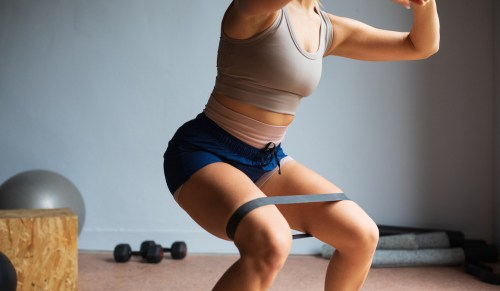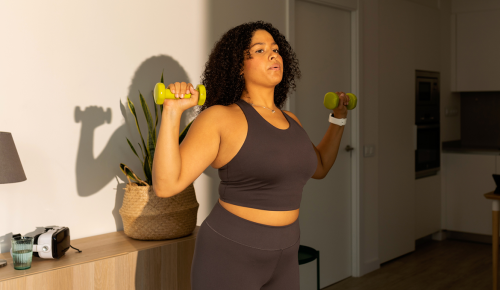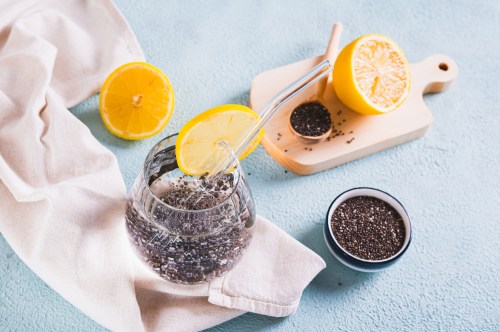The rumor mill recently told me that certain workouts (low-intensity and moderate-intensity) outpace their higher impact counterparts when it comes to strengthening immunity. Since flu season is on the brain, and I silently curse anyone who dares sneeze in my direction, I needed to know the cold, hard fitness truth: do certain types of exercise boost immunity, and which ones make it worse?
In search of the answer to that very question, researchers in the 1980s followed up with runners of the Los Angeles Marathon to see how their immune systems fared following 26.2 miles. Many reported having infections, leading scientists to believe that strenuous forms of exercise hinder the immune system. For 40 years, that belief persisted. That is, until 2018 research published in the journal Frontiers of Immunology debunked it, concluding: “We have critically reviewed related evidence, and conclude that regular physical activity and frequent exercise are beneficial, or at the very least, are not detrimental to immunological health.”
What a wild ride, right? Research, it seems, has been wishy-washy when it comes to discerning whether yoga is better for your immune system than, say, going for a run. So I asked two different doctors to give their take.
First, I asked immunologist Tania Elliott, MD, an attending physician at NYU Langone Health. “High-impact workouts are more taxing on our bodies overall within a shorter increment of time,” says Dr. Elliot. “This means higher chances of injury, and very high stress on the body including the intense buildup of lactic acid, which is a toxin. It doesn’t allow for much recovery time, which makes things very tough on the immune system.” That said, Dr. Elliott does think it’s a bit of a stretch to say that high-impact exercise will be the reason you get a cold, or the reason you get the flu. Sure, it could contribute to you feeling run down… but it won’t be the difference between being well and being bed-ridden.
More importantly, high-intensity workouts bring you the kind of heart benefits that help you stay kicking for a long, long time. “There is actually evidence that interval training with high intensity confers significant cardiopulmonary benefits equal to or perhaps greater than longer bouts of more moderate exercise,” says Roger Luo, MD, assistant professor of spine and musculoskeletal medicine at the Rutgers New Jersey Medical School. “When it comes to high impact exercise with loaded weights, participants should be more concerned about performing these exercises with proper form and technique and appropriate load.”
The takeaway: Even when it’s super, super cold outside and your co-workers seem to be dropping right and left, you should still vary your workouts between different intensities. “Generally I would recommend people not focus exclusively on strength, or power, or endurance but rather a combination of all three,” says Dr. Luo. “You can achieve this by any number of ways, including resistance exercise with dumbbells or weights, bodyweight exercises, even resistance bands.”
If you don’t generally like high-impact workouts, Dr. Elliott recommends hopping in the pool three times a week to start to reap those cardiovascular benefits without the wear-and-tear of something like running or cycling. “Once you feel like your stamina has been built up, layer in 2 days a week of high impact, starting with just a few minutes per day and then building up,” she says. In short, you do you—but don’t write-off heart-pumping workouts in the name of coronavirus.
Go ahead—kick that immune system into high gear:
These are foods to eat all winter long to stay healthy. And this is the immunity-boosting dressing to drizzle on anything and everything edible.
Sign Up for Our Daily Newsletter
Get all the latest in wellness, trends, food, fitness, beauty, and more delivered right to your inbox.
Got it, you've been added to our email list.











